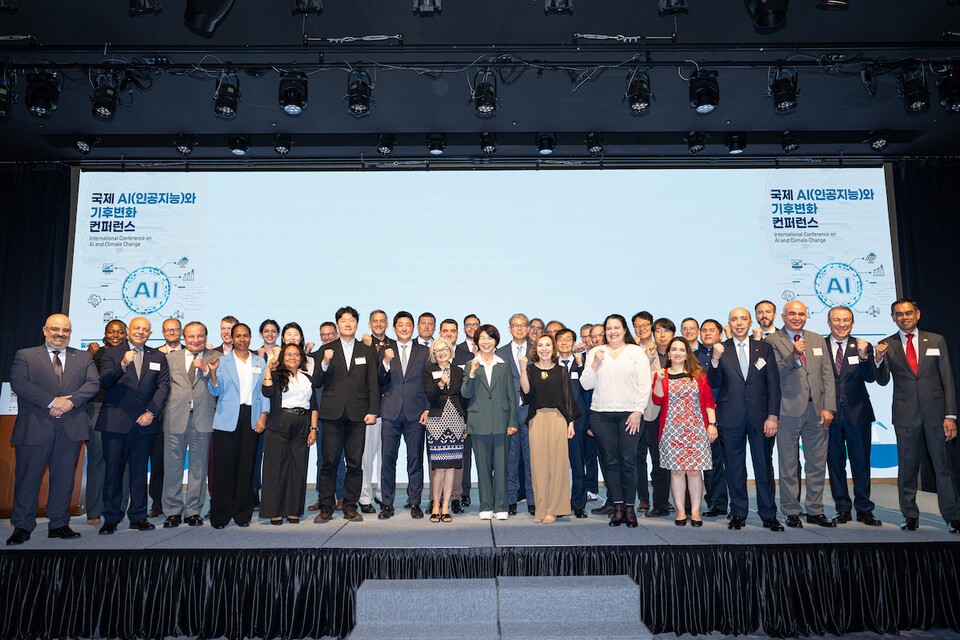The Ministry of Foreign Affairs announced that it held the ‘International AI and Climate Change Conference’ in Seoul on July 1. This event was organized to share trends in technology and explore ways for international cooperation, as AI technology increasingly impacts climate change response and energy transition.
About 450 attendees from government, industry, research institutions, academia, international organizations, and the diplomatic corps in Korea participated in the conference. The Korea Institute of Energy Research hosted the event with sponsorship from the Seoul Center for Creative Economy & Innovation, the Early-Stage Investment Accelerator Association, and the Chungnam Content Agency.
Under the theme ‘AI for Climate Change and Energy,’ experts from nine countries, including Korea, the United States, Japan, France, and Germany, along with personnel from international organizations such as UNEP (United Nations Environment Programme), gave presentations.
The first session introduced AI utilization methods in fields such as carbon emission tracking and reduction, climate change adaptation, climate prediction enhancement, and climate finance formation. The second session discussed the potential application of AI technologies for energy consumption management, efficiency improvements, renewable energy volatility prediction, and power grid integration.
Jung Ki-yong, the Ambassador for Climate Change at the Ministry of Foreign Affairs, stated, “It is timely to discuss the complex problems occurring at the intersection of climate and AI,” emphasizing that “Korea is determined to continue serving as a bridge between developed and developing countries.” He also highlighted the importance of international cooperation in addressing new challenges such as increased energy consumption resulting from the spread of AI technologies.
The Ministry of Foreign Affairs assessed that the event contributed to stimulating discussions on AI use in the climate and energy fields and expanding public-private cooperation and international coordination. It plans to focus on expanding international cooperation for climate change response and energy transition in the future.
